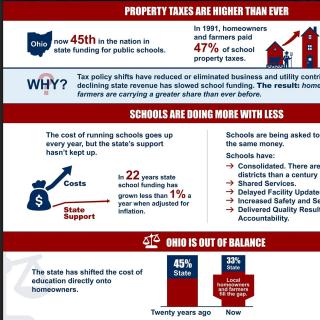Advertisement
The Republicans may lose majority control of the United States Senate if they are unable to pick up one of the last two seats, both in Georgia where automatic run-off elections will be held Tuesday, January 5th.
The Republicans have secured 50 of the 100 total US Senate seats leaving them one seat shy of a majority. In Georgia, the two US Senate races were so close last November that local laws triggered automatic run-off elections scheduled for January 5th.
With the two Senate races neck and neck, voting rights activists have been fighting to get hundreds of thousands of disenfranchised voters back on track to vote.
The races will impact the Senate in the coming years since with Biden as president, if Republicans are not able to pick up another Senate seat, Vice President Kamala Harris will be able to cast a tie-breaking vote in the Senate overpowering the Republican voting bloc for votes along party lines.
Trump’s team filed multiple lawsuits in battleground states alleging voter fraud even though, according to most major news outlets, Presidential Candidate Joe Biden won.
The actual incidents of voter fraud, where people try and vote unlawfully, are incredibly low. A Washington Post report, for example, found 31 incidents of voter fraud out of a billion votes cast.
But vote suppression, where techniques are used to block people from voting, or discount their vote, including through gerrymandering, creatively drawing voting districts, is very common, and has a long history in the United States, mostly effecting poor, minority, and young voters.
Georgia Counters Vote Suppression
Investigative reporter Greg Palast, who has been covering elections for decades, watched Georgia closely. Palast tweeted on the 14th of October that, “The long lines we're seeing in Georgia, to a great extent, are because—as we exposed in a report for @ACLUofGA —198,000 voters were wrongly purged from the rolls.” This report is now the basis of a lawsuit to reinstate these purged voters before the January run-off election.
Compare that number of 198,000 purged voters to the results in the first round of voting for the Senate seats in Georgia where Republican incumbent David Perdue lead the Democrat Jon Ossoff by about 85,000 votes. In the other Senate race the Democrat was leading by a few hundred votes.
“Vote suppression is simply class war by other means,” Greg Palast wrote in, How Trump Stole 2020, published before the election. Palast said students, black folks, and poor whites are among those most likely to lose their vote.
Palast, and his 15-person team of journalists and lawyers, uncovered wrongfully purged voters and collaborated with groups to immediately re-register as many from the list as possible. Palast worked with several groups including Black Voters Matter Fund, ACLU, NAACP, Southern Christian Leadership Conference and the Georgia Coalition for the Peoples Agenda.
According to the Associated Press, Biden’s lead in Georgia is less than 15,000 votes, possibly the difference made by Palast and his associates by uncovering purged voters, and notifying those voters before the election.
Palast said he has been investigating vote suppression in Georgia ever since Martin Luther King III, who is Rev. Dr Martin Luther King, Jr.’s son, told him, “Greg, Georgia is a Blue state…if they’d let us vote.”
For more on vote suppression resistance efforts see Who Will Protect Georgia's Vote Count?, by Harvey Wasserman and Columbus Free Press’s Bob Fitrakis.
Wall Street Celebrates Government Gridlock
Wall Street celebrated surging stocks the day after the presidential and congressional elections last November on the news of government gridlock.
“Divided government, or "gridlock" in Wall Street parlance, is viewed as the best of both worlds by investors,” wrote Matt Egan, for CNN on November 5th in the article The election isn't over but Wall Street is already celebrating. Here's why.
Government gridlock erases the concern for Wall Street that Democrats would take both houses of congress and enact policies that might cut into corporate profits.
On January 6th, the day after the Georgia run-off elections, US Congress officially affirms the presidential electoral votes, which some have speculated could face objections from Republicans loyal to Trump, creating chaos before the expected transfer of power.
While Trump’s effort to reject the vote outcome was weakened by the resignation of US Attorney General William Barr on the grounds that Barr failed to produce evidence of voter fraud, this late-in-the-game departure also underlined Trump’s intention to keep fighting.
Note: In the book mentioned above, How Trump Stole 2020, Palast quotes Columbus Free Press Editor Bob Fitrakis.



